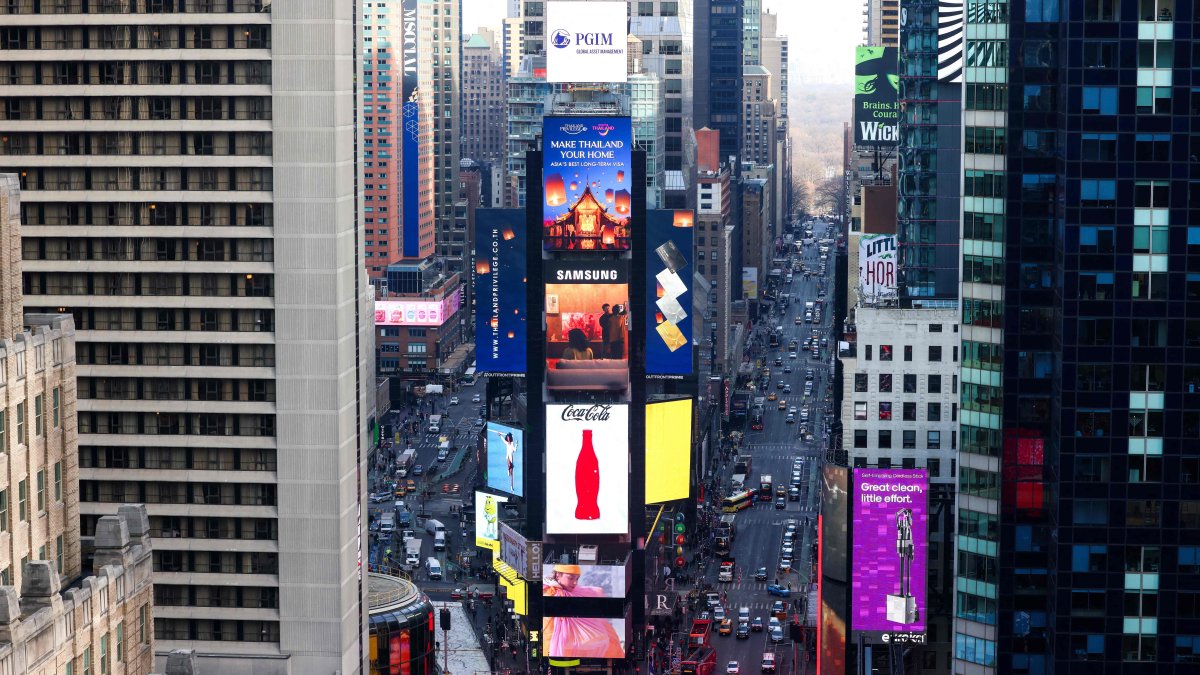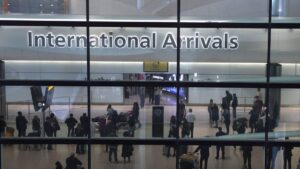The U.S. tourism outlook has clouded in just a couple of weeks due to President Donald Trump’s policy decisions that have irked some foreign visitors and prompted fears of a price surge amid a stronger dollar.
Foreign traveler arrivals in the U.S. are expected to decline by 5.1% in 2025 compared to last year, against a previously projected increase of 8.8%, Tourism Economics said in a report published late last month.
Their spending is expected to slide 10.9%.
Since the report’s publication, “the situation has deteriorated further,” and the outcome will likely be even worse, Tourism Economics President Adam Sacks said, citing “the effects of antipathy toward the U.S.”
In recent weeks, the Trump administration has slapped tariffs on Canada, Mexico, and China – and threatened to impose them on the European Union. A sweeping plan to curb immigration has intensified.
Government bodies like the U.S. Agency for International Development (USAID) have been decimated, thousands of civil servants from lawyers to park rangers have been laid off, and Trump has drawn up new, in instances controversial, plans for the wars in Ukraine and Gaza.
“A situation with polarizing Trump Administration policies and rhetoric … will discourage travel to the U.S.,” said Tourism Economics, a subsidiary of Oxford Economics.
“Some organizations will feel pressure to avoid hosting events in the U.S. or sending employees to the U.S., cutting into business travel,” it added.
The World Tourism Forum Institute (WTFI) said a mix of stringent immigration policies, a strong dollar and global political tensions “could significantly affect” international arrivals, “potentially reshaping the nation’s tourism sector for years to come.”
Among residents of 16 European and Asian countries surveyed by YouGov in December, 35% of respondents said they were less likely to come to the U.S. under Trump, while 22% were more likely.
‘A bit scared’
For tourists from France, Uzbekistan and Argentina who were interviewed by the Agence France-Presse (AFP) in New York’s Times Square, Trump’s stance has not upended their plans.
Marianela Lopez and Ailen Hadjikovakis, both 33, nevertheless used their European passports rather than their Argentine ones to avoid any problems at the border.
“We were a bit scared about the situation, but we didn’t change our plans,” said Lopez.
The Lagardere family, who came from France, said it hadn’t impacted their plans either.
The Americans “elected this president. It’s democracy. If they’re not happy, they’ll change it in four years,” said Laurent Lagardere, 54.
“He is who he is,” and avoiding the U.S. “won’t change anything,” Lagardere added.
Some 77.7 million foreign tourists were expected in 2024, up 17% year-on-year, according to the National Travel and Tourism Office, which does not yet have final figures for last year.
Canadians saying no to New York
Tourists from Western Europe – who made up 37% of visitors in 2024 – are the most likely to choose other destinations, along with Canadians and Mexicans.
The U.S. Travel Association warned in early February that customs tariffs would deter Canadians, the largest contingent of foreign tourists in the U.S. with 20.4 million in 2024.
According to Statistics Canada, the number of Canadians returning from the U.S. fell 23% in February year-on-year, the second consecutive monthly decline.
In New York, which welcomed 12.9 million foreign travelers in 2024, the effect is already noticeable, with Canadians canceling tour bookings and dropping online searches for hotels or Broadway shows, NYC Tourism president Julie Coker told AFP.
She lowered her forecast for the year in February but said that, so far, only Canadians have rejected Trump’s America.
“We’re not currently seeing anything from the U.K. or Europe” because it’s too early, she said. “We are definitely watching that very closely.”
But British and German authorities have just warned their nationals to be extra vigilant with their travel documents, citing the risk of arrest.
United Airlines has noted a “big drop” in travel from Canada to the U.S. as well as a decline in demand for domestic travel, as have several competitors.
According to Tourism Economics, the tourism sector could lose about $64 billion in revenue in 2025 due to the decline in international and domestic travel.
Americans now appear frozen by the economic outlook, and terms like recession and inflation also scare tourists, along with the risk of a stronger greenback, experts point out.
“This will make the U.S. more expensive for inbound travelers, dampening both visitor volume and average length of stay,” noted Tourism Economics.
Professionals also fear the effects of tightening immigration policy on major sports events hosted by the U.S., such as the Ryder Cup (2025), the FIFA World Cup (2026) and the 2026 Summer Olympics in Los Angeles.




















































Be First to Comment